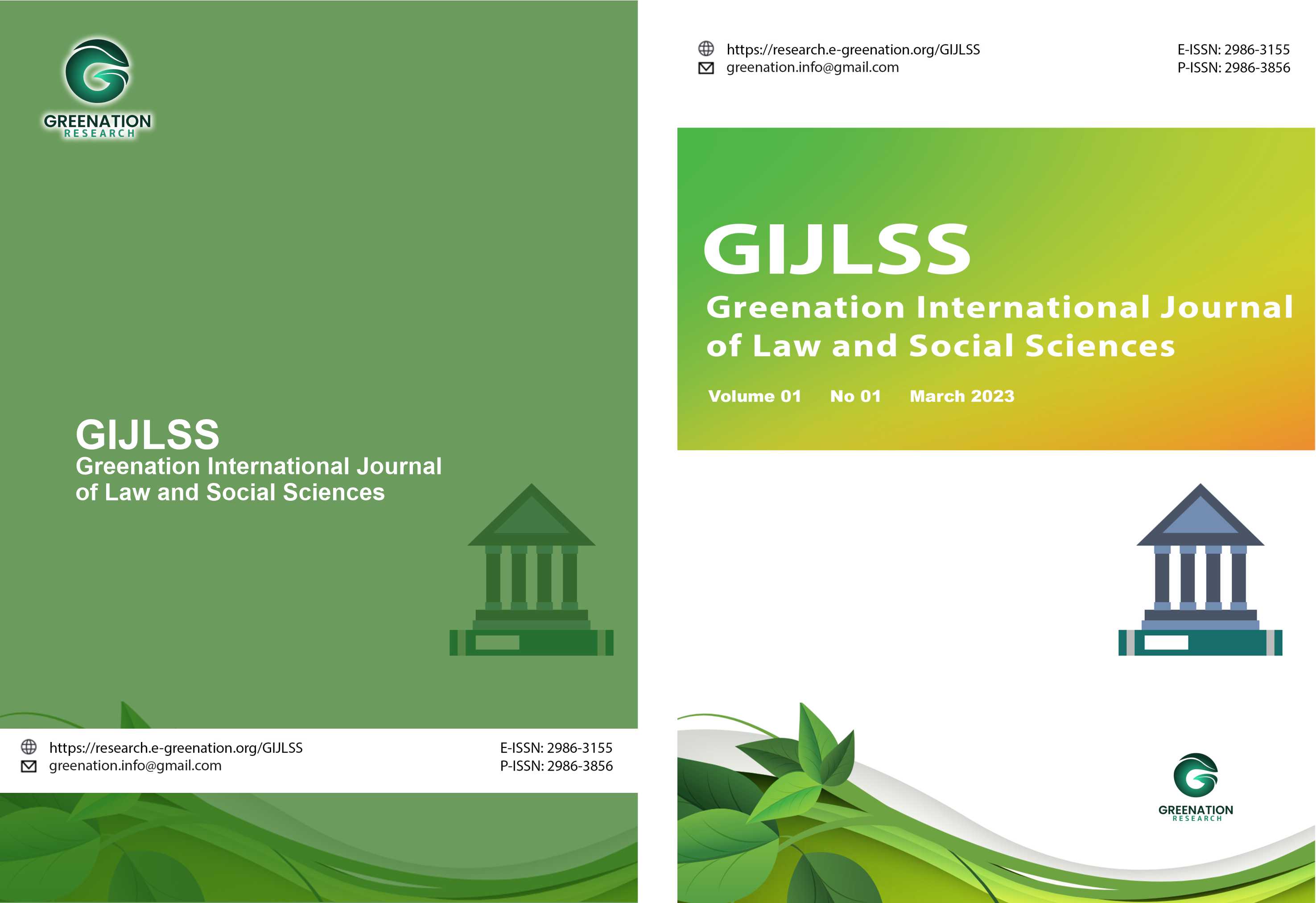Dynamics of Civil Law in the Digital Era: Transformation, Challenges, and Legal Certainty
DOI:
https://doi.org/10.38035/gijlss.v3i3.579Keywords:
Civil Law, Digital Era, Legal Certainty, Digital Assets, Electronic ContractsAbstract
The digital era has transformed the socio-economic landscape, giving rise to new legal objects and relationships unanticipated by the Indonesian Civil Code (KUHPerdata), a colonial-era legal product. Phenomena such as electronic contracts, digital assets (crypto assets and NFTs), and online dispute resolution (ODR) challenge the relevance and capability of the existing civil law framework. Despite partial regulations like the Information and Electronic Transactions (ITE) Law, this legal fragmentation creates uncertainty and systemic friction, where a 19th-century legal framework clashes with 21st-century digital realities, thereby hindering the growth of the digital economy that demands legal certainty. This study aims to analyze the normative limitations of the KUHPerdata in accommodating digital transformation, identify key legal challenges related to the validity of electronic contracts, the property status of digital assets, and the effectiveness of ODR, and formulate a responsive and integrative civil law reform concept. This research employs a normative juridical method with a statute approach and a conceptual approach. The analysis is conducted on primary legal materials such as the KUHPerdata and the ITE Law, as well as secondary legal materials relevant to cyber law theory and legal reform. The study finds that the concept of property ('kebendaan') in the KUHPerdata is inadequate for classifying digital assets, causing ambiguity in ownership, inheritance, and collateralization. While the ITE Law provides de jure legitimacy to electronic contracts, de facto implementation is hampered by the absence of technical rules on evidence and data security. Furthermore, the lack of a specific legal framework for ODR creates a legal vacuum that obstructs efficient e-commerce dispute resolution. Indonesia's current civil law framework is reactive and fragmented, failing to provide comprehensive legal certainty in the digital era. A fundamental and holistic reform of the KUHPerdata is imperative to modernize the concept of property law, establish secure standards for electronic transactions, and build a solid legal foundation for ODR.
References
Abunawas, S., Amiriani, R., & El Hendrianto. (2021). Modernization of Indonesian law through revision of the Civil Code . Journal of Education, Humanities and Social Sciences (JEHSS) , 6(2).
Akbar, FMA (2024). QUALITATIVE AND QUANTITATIVE METHODS IN ISLAMIC STUDIES. Ar Rasyiid: Journal of Islamic Studies , 2 (2), 95-112.
Anshori, AG (2018). Philosophy of law . Yogyakarta: UGM Press.
Busro, A. (2012). Contract law based on Book III of the Civil Code . Yogyakarta: Pohon Cahaya.
Harahap, MY (2005). Civil procedural law . Jakarta: Sinar Grafika.
Hernoko, AY (2013). Contract law: The principle of proportionality in commercial contracts . Jakarta: Prenada Media.
Huijbers, T. (1995). Philosophy of law . Yogyakarta: Kanisius.
Junaidi. (2021). Synergy of law and power in realizing social justice. Supremacy of Law: Journal of Legal Research , 30(1).
Krisnowo. (2022). Property rights and validity of virtual land property agreements in the metaverse reviewed based on the Civil Code. National Law Magazine , 52(2).
Mauludin, TS, Adwinata, T., & Dwiputra, AG (2024). Implementation of online dispute resolution (ODR) after the enactment of the 2021 Arbitration Rules and its impact on the parties. Jurnal Hukum Lex Generalis , 5(1).
Muhammad Ubayyu Rikza. (nd). Electronic evidence and its implications for civil evidence in court. Raha Religious Court.
Nonet, P., & Selznick, P. (2008). Responsive law (2nd ed.). Bandung: Nusa Media.
Permana, RA (2023). NFT as a material collateral object: Implications for material law and intellectual property rights. Journal of Law Lex Generalis .
Putra, RT, & Adwinata, AT (2023). Online dispute resolution (ODR) as an alternative for resolving business disputes in Indonesia. JAKSA – Journal of Law and Political Science , 3(3).
Rahardjo, S. (2009). A state based on law that makes its people happy . Yogyakarta: Genta Publishing.
Rahardjo, S. (2012). Legal Science . Bandung: PT Citra Aditya Bakti.
online dispute resolution (ODR) prospects as a new construction for resolving e-commerce transaction disputes in Indonesia. The Law Journal , 6(1).
Syamsulbahri, H. (2020). The existence of electronic evidence in civil cases. Jakarta High Religious Court.
Triyono, A. (2017). The theory of development law from Prof. Dr. Mochtar Kusumaatmadja, SH, LL.M. Lhoksukon District Court.
Law of the Republic of Indonesia Number 30 of 1999 concerning Arbitration and Alternative Dispute Resolution.
Waris, A. (2022). Renewal of national contract law in response to the development of electronic transactions in the digital era. Unisba Proceedings.
Downloads
Published
How to Cite
Issue
Section
License
Copyright (c) 2025 Muhammad Abdurrohman Sholih, Subianta Mandala

This work is licensed under a Creative Commons Attribution 4.0 International License.
Copyright :
Authors who publish their manuscripts in this journal agree to the following conditions:
- Copyright in each article belongs to the author.
- The author acknowledges that the Greenation International Journal of Law and Social Sciences (GIJLSS) has the right to be the first to publish under a Creative Commons Attribution 4.0 International license (Attribution 4.0 International CC BY 4.0).
- Authors can submit articles separately, arrange the non-exclusive distribution of manuscripts that have been published in this journal to other versions (for example, sent to the author's institutional repository, publication in a book, etc.), by acknowledging that the manuscript has been published for the first time at GIJLSS.























